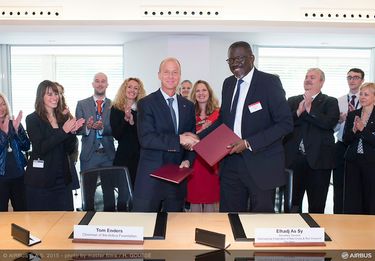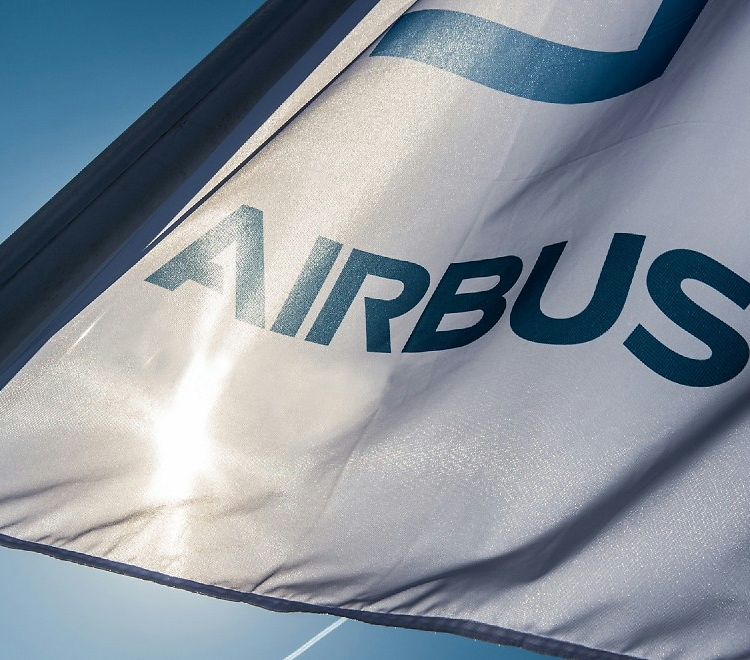A signatory to the United Nations Global Compact, Airbus is a firm believer in the private sector’s ability to make the world a better place.
Guided by the UN Global Compact
In September 2015, the 193 member states of the United Nations (UN) adopted the Sustainable Development Goals (SDGs) in a bid to eradicate world hunger and poverty, protect the environment and combat climate change by 2030. In December of that same year, Airbus became one of the first aerospace companies to adopt these goals and convert them into the core of its corporate social responsibility policy.
Rather than attempting to implement all 17 of these goals, which are divided into 169 targets, the company undertook a process of analysis to determine where it could really make a difference and then established plans in these areas.
The company worked together with the Air Transport Action Group (ATAG), who carried out a survey of members of the aerospace industry. “The results showed that those surveyed thought there were several priority areas we should be working on: decent work and economic growth; industry, innovation and infrastructure; climate action; and sustainable cities and communities,” explains Andrea Debbane, executive director of the Airbus Foundation, which is heading the project to adopt and apply the SDGs.
The role of millennials in achieving the UN goals
The role of ‘millennials’ born between 1980 and 2000 will be instrumental in achieving the goals established by the UN. As part of its project, Airbus established working groups of millennial employees from all over the world to find out which goals they thought should be prioritised and pursued more actively.
“Millennials are the future leaders of the company and we discovered that as a generation they have a very different view of things,” says Debbane. The majority thought that the company could be most impactful in responsible consumption and production, affordable and clean energy, and partnerships for the goals.
The participants, who were all Airbus employees, were located not just in Europe but worldwide in order to provide as global a view as possible. Not only did they propose their ideas, they also formulated specific proposals for each of the goals.
For example: why couldn’t Airbus become a global leader for aerospace engineering education and create the necessary tools so that this training could be more accessible in developing countries, perhaps by expanding internet coverage in hard-to-access areas? Why not make better use of the energy produced by the company’s own activities and generate less polluting materials?
This group of professionals does not view the SDGs as a mere statement of intentions, but rather an opportunity to extend the company’s activities and generate additional profit while at the same time doing its part to create a fairer and more sustainable planet.

At the forefront with Airbus Foundation
Airbus has already started up similar initiatives to those proposed by the millennials. For example, Airbus Foundation recently established a science, technology, engineering and mathematics (STEM) centre in Stevenage (United Kingdom), with the aim of encouraging young students to take up a career in these areas.
Students can visit the site used to simulate the surface of Mars for tests of the new Rover that will travel to the red planet on the ExoMars mission, and they can talk with the engineers who designed it. Airbus Foundation is also working on an online STEM education programme that has the potential to reach and inspire “millions of youth all over the world,” says Debbane.
In addition, Airbus has joined forces with NGOs working on the SDGs. For example, as part of an open challenge it has collaborated in the design of new devices for hand hygiene together with the International Federation of Red Cross and Red Crescent Societies (IFRC).
In the near future, the Airbus Foundation plans to start up similar challenges to adapt existing technologies to the problems that these NGOs face on the ground. The idea is to transfer knowledge to where it can help others, for example through the use of drones, 3D printing or nebulising and disinfecting technology. “We can exploit our capacity for problem solving and be of great help to other organisations that are also working to achieve different SDGs,” says Debbane.
“These are issues that all businesses should be contemplating,” says Haldane Dodd of ATAG. “The SDGs set out a very useful framework to help companies view their sustainable development responsibilities. Airbus is doing a lot to contribute to a more sustainable world and, importantly, has been careful to select the areas where its expertise and skills can have the greatest impact.”
Nuño Domínguez
